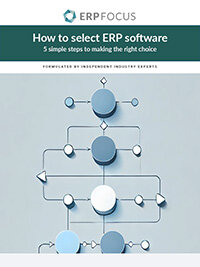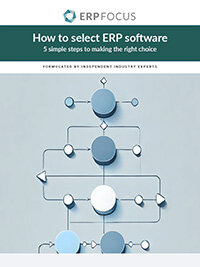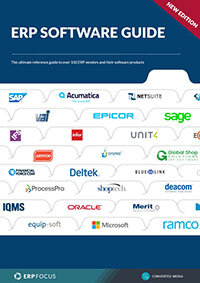4 things you should know about ERP vendors before selecting their system?
The potential of a successful ERP implementation is typically driven by two competing considerations; effective management of internal system/cost limitations, versus commercial/operational forces produced by external pressures. In either of these cases vendor selection becomes critical. Unless an enterprise is resource-flush enough to do its own end-to-end system implementation, it is likely that a vendor partner “must” become part of any solution.
So, what elements go into an effective ERP vendor selection, and which decision components are typically forgotten in the midst of executing the process on time and to budget?
1. Vendor vs enterprise culture
As arcane as it may appear, the potential of waging one or more internal “culture wars” in the midst of an ERP vendor selection represents a much more prevalent problem that one might think. If the senior management of a small enterprise struggling to become “bigger” sees an opportunity to reach its goals more efficiently with ERP, does that company’s subordinate management, along with its larger workforce also harbor wholehearted confidence in the idea?
Recommended reading: ERP selection survival guide - 10 steps to selection success
In this case, an ERP vendor’s ability to “sell and match cultural values” by making the right points at the right time, can make or break any implementation relationship. Again, a system is only as good as its people, and it’s a whole lot easier to pull a cart, rather than pushing it.
2. Scale matching
In the same way that culture applies to the efficient selection of an ERP vendor, the relative sizes of an enterprise and its potential systems partner applies as well. Using the previous “small business in transition” scenario, while SAP/Oracle produce outstanding ERP platforms, would a $5 million “Mom and Pop” manufacturing operation be able to pay the freight necessary to get an implementation executed successfully? And will the company harbor enough workforce resources to deal with simultaneous operational/implementation challenges on a daily basis; or would a better-scaled cloud-based “starter” ERP system be the best solution?
At the end of the day, this kind of decision must always be left to enterprise staff themselves. However, it’s always better to work with someone who understands the intrinsic challenges posed by today’s small business environment, rather than struggling to “pay” for a system that is too much for a company to handle.
3. Validate based on delivered value
By now you have probably noticed that all of these selection decisions involve direct or indirect “cost”; whether it has to do with cash out, the potential of lost time, or all of the above. Consequently, any effective vendor selection “needs” to be driven by how efficiently ERP vendors deliver in the real world, not on the basis of glossy sales materials that offer much, but may cost even more over time.
As a consequence, one of today’s of the most useful research elements involves the ability to analyse customer driven product reviews. Any enterprise should be utilizing the experiences of other customers to validate or invalidate a potential ERP vendor partner, since it is likely that real-world comments will offer at least a reasonable understanding of who you’re about to do business with.
4. Historical completion efficiencies
Over the years, while there have been a number of highly-publicized ERP successes, unfortunately, there have been an equal number of disasters in the market. Consequently, when searching for the right vendor partner, is it most instructive to review the customer completion ratios associated with various vendors, and if those metrics are not readily available, one should be ready to ask a candidate company to describe those values in detail before you pull the trigger. To do otherwise, will put an enterprise on its back foot at the outset, and run the risk of making a mistake that could otherwise be avoided.
Free white paper

How to Select ERP
Learn to select your ERP in 5 easy steps by following our expert's advice

Featured white papers
Related articles
-

How to evaluate your ERP RFP responses
The dos and don'ts of evaluating ERP RFPs (including RFP evaluation matrix)
-

How the right ERP can help you launch a successful omnichannel business
Petersen Zhu, CEO of DigitBridge and Vibes Base, shares how to create a scalable omnichannel stra...
-

The best ERP systems for process manufacturing
Consider these ERP systems when selecting your next process manufacturing ERP




